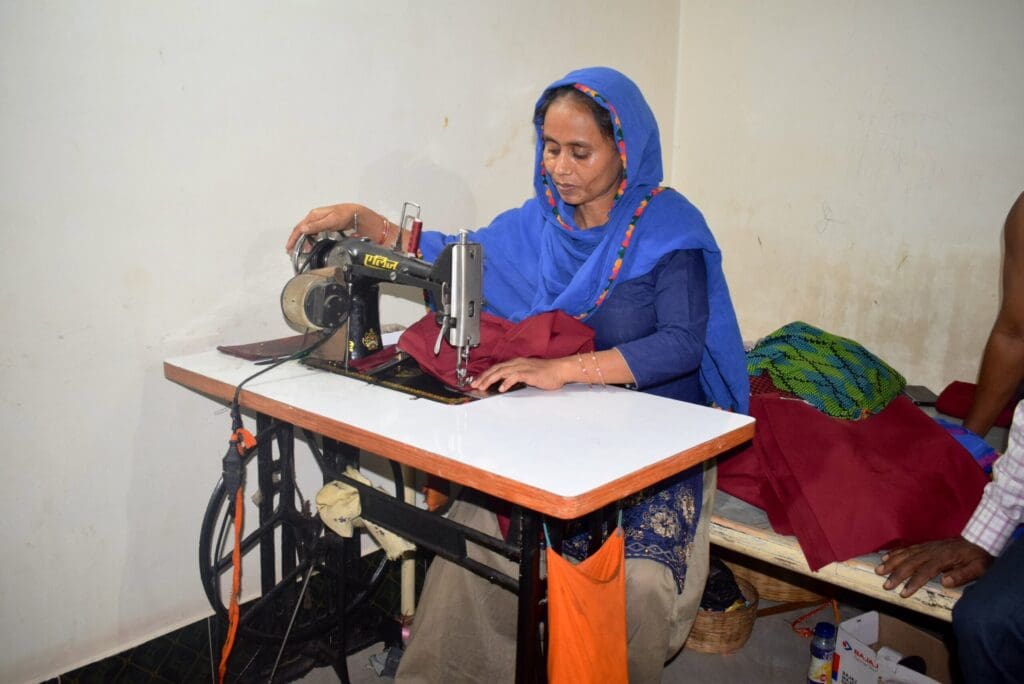Solar Powered Tailoring Solutions - Jharkhand
In the garment industry in India, it is common to find small tailoring clusters in rural areas as individual or institutional set ups. These clusters work on bulk orders from garment companies and manufacturers who outsource their tailoring needs to them. For the company, this is a low cost production supply chain, and for the communities, it is a critical employment avenue. Some companies often create the basic infrastructure required to support smooth operations and timely delivery of tailored goods, such as sewing machines and designated tailoring spaces.
Maganpur is one such village in the Gola block of Ramgarh district, Jharkhand. The people in this village are traditionally tailors and it is also their only source of income and livelihood. Nearly 300 families in the village are landless and completely dependent on tailoring as an occupation. They use motorised sewing machines which are powered by electricity from the grid. However, electricity supply is predictably poor and erratic, and due to frequent interruptions, the tailors are not able to complete their orders in time, which are for markets in Kolkata and Cuttack. Due to these interruptions, they end up spending several additional hours at the machine (~8 hours a day), leaving no time for other activities or chores. For women tailors, this was a greater burden, as they were also responsible for cooking meals for the family, managing the household and taking care of children or the elderly.
To counter the poor quality of electricity supply, a hybrid sewing machine model was developed, that could run on both grid electricity and solar power. Together with Selco India and Agragati, the local partner, 50 tailoring households in Maganpur were supported to adopt the technology. The tailoring families contributed 46% of the asset cost. The model significantly improved the energy reliability for tailors and allowed them to use the machine without interruptions. Previously, a tailor could stitch 20-22 blouses in a day. With the hybrid machine, they are now able to stitch 30-36 blouses in the same amount of time.
Shahanaz Khatoon, a seasoned tailor in Maganpur, was one of the users of the hybrid machine, and was able to earn an additional income of Rs. 12,000 due to the increased productivity and reliability of power supply. Based on the promising success of the 50 units installed in the first phase, another 100 units are planned for implementation.

